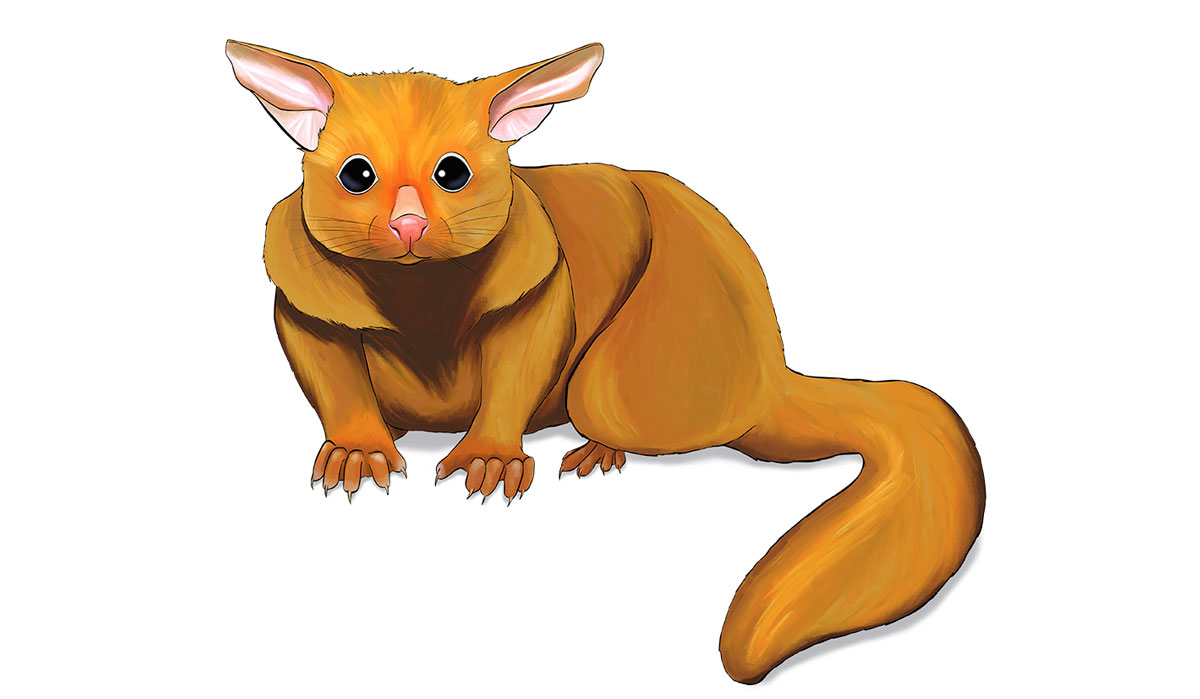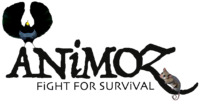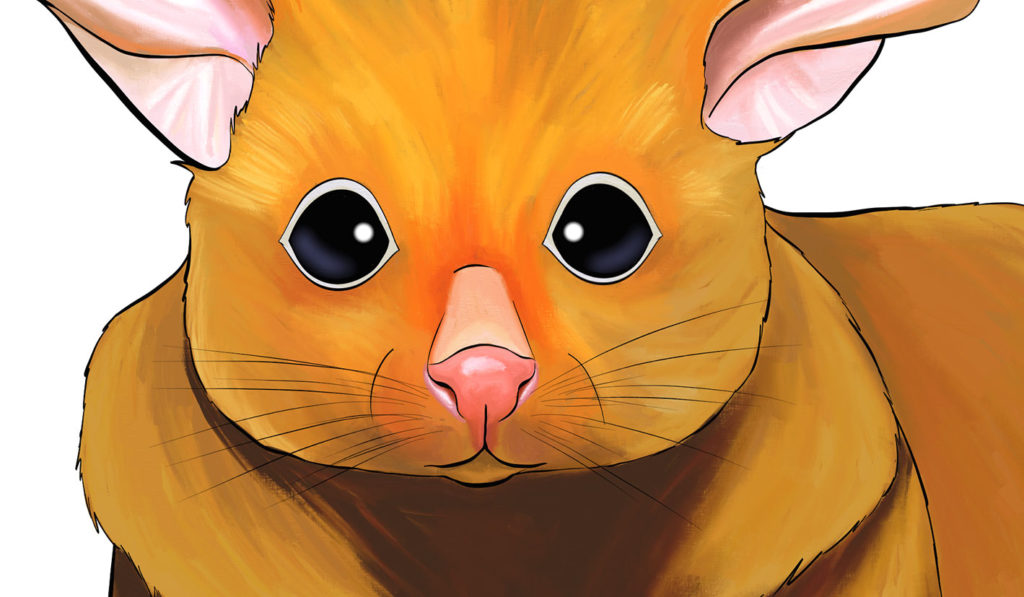FULi is the Golden brushtail possum (Trichosurus vulpecula fuliginosus)!
Species report on the Golden brushtail possum
- FULi is the same species as the Common brushtail possum, but with a genetic mutation that makes their fur a golden colour
- Their colour makes them conspicuous to predators, so they are rare and found primarily in Tasmania
- Possums are OMNI species, though they predominantly eat flowers, buds and fruit.
Possums are nocturnal, arboreal marsupials with a prehensile tail. FULi are omnivores, mostly eating flowers, buds and fruits. The wider, ‘common’ brushtail possum species is common in urban areas and lives throughout most of the continent, and are even found in New Zealand as an introduced species. Interestingly, a significant portion of the population in NZ have the golden fur mutation of FULi!
What is a Golden brushtail possum?
Whilst FULi may look like something out of a dream, they are just a common brushtail possum with a genetic mutation that changes their colouration.
The mutation reduces the levels of melanin in their skin and fur. Common brushtail possums have a varied coat colour depending on their location, but golden brushtail possums are only found in the wild in Tasmania.
Because of their light-coloured fur, they are more conspicuous to predators, therefore they are only found in the wild in regions where there are fewer predators, and dense foliage.
Brushtail possums are the largest possums in Australia, weighing up to 4.5 kilograms! Males are bigger than females and will often have dark red-brown marks on their chests where their scent glands are located. They use these glands to mark their territories.
Where does a Golden brushtail possum live?
In the wild, FULi lives in forests, woodlands, and even heathlands. They retreat to hollow logs, hollow branches, tree trunks, or even caves during the day. Possums are completely arboreal and will even make their den in a tree; the den is called a drey and is a big spherical nest of sticks. In urban areas, they sometimes den in houses! This causes issues with human-wildlife conflict when people are uncomfortable with sharing their home with a FULi. The possums are also in danger in urban areas where they are at greater risk of coming across dogs and cats.

Possums tend to be solitary and will fight when they come across another possum in their territory. They will mate at any time of the year and are promiscuous, meaning that they will mate with any member of the opposite sex. Babies are born after 16-18 days gestation, then spend four to five months in their mother’s pouch. Then they spend a further three to four months being carried around on their mother’s back.
What are the dangers for FULi the Golden brushtail possum?
Outside of urban areas, the brushtail possum’s natural predators include iNGO (the dingo), pythons (like ViRiD) and large birds of prey (like AUDAX!). They are also at risk of predation from one of the ANiMOZ dangers: Invasive Species, like foxes and cats.
They are also threatened by habitat loss, further exacerbating their move into urban areas.
To protect FULi in urban areas, we can make sure to keep pets inside at night, and to use non-lethal relocation methods when they choose to den in our houses.
We can also plant native trees in our yards, and – as ANiMOZ Rangers – help to stop Habitat Destruction!
Read more species reports from ANiMOZ Ecologist, Ranger Tessa here:
Have you ever seen FULi in the wild? Make sure to share your photos and tag #wildANiMOZ!

